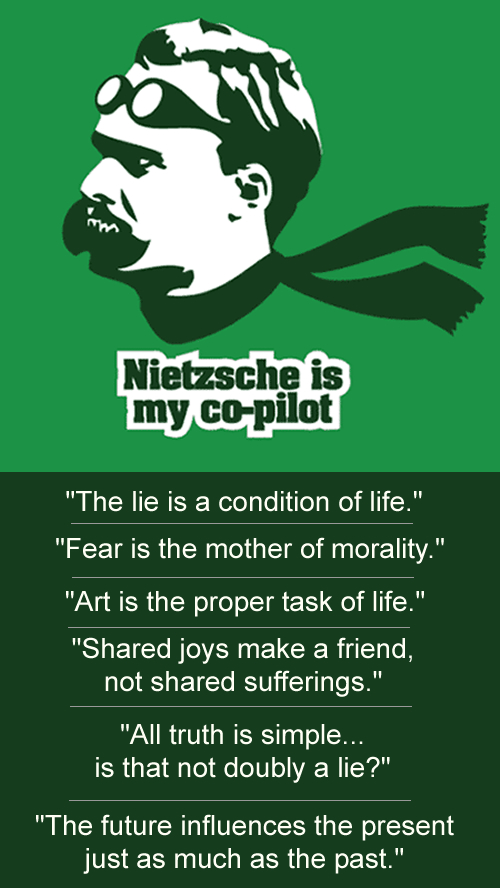Republished by Blog Post Promoter
Friedrich Wilhelm Nietzsche (October 15, 1844 – August 25, 1900) was a German philosopher, poet, composer, cultural critic, and classical philologist. He wrote critical texts on religion, morality, contemporary culture, philosophy, and science, displaying a fondness for metaphor, irony, and aphorism.
Nihilism ( from the Latin nihil, nothing) is the philosophical doctrine suggesting the negation of one or more putatively meaningful aspects of life. Most commonly, nihilism is presented in the form of existential nihilism, which argues that life is without objective meaning, purpose, or intrinsic value.Moral nihilists assert that morality does not inherently exist, and that any established moral values are abstractly contrived. Nihilism can also take epistemological or metaphysical/ontological forms, meaning respectively that, in some aspect, knowledge is not possible, or that reality does not actually exist.
Nietzsche noted in his autobiographical Ecce Homo that his philosophy developed over time, so interpreters have found it difficult to relate concepts central to one work to those central to another, for example, the thought of the eternal recurrence features heavily in Also sprach Zarathustra (Thus Spoke Zarathustra), but is almost entirely absent from his next book, Beyond Good and Evil. Added to this challenge is the fact that Nietzsche did not seem concerned to develop his thought into a system, even going so far as to disparage the attempt in Beyond Good and Evil. (Wikipedia.org)
READ MORE ABOUT THE PHILOSOPHY OF NIETZSCHE HERE

